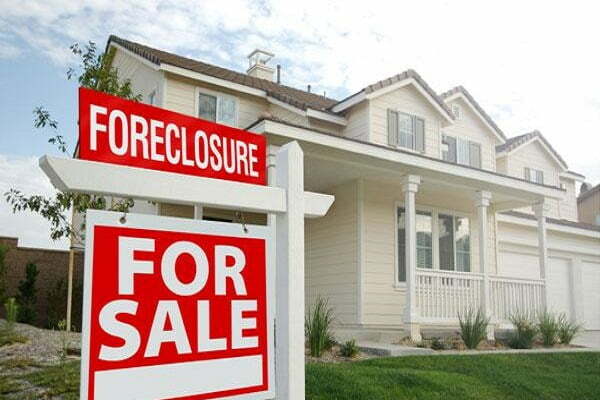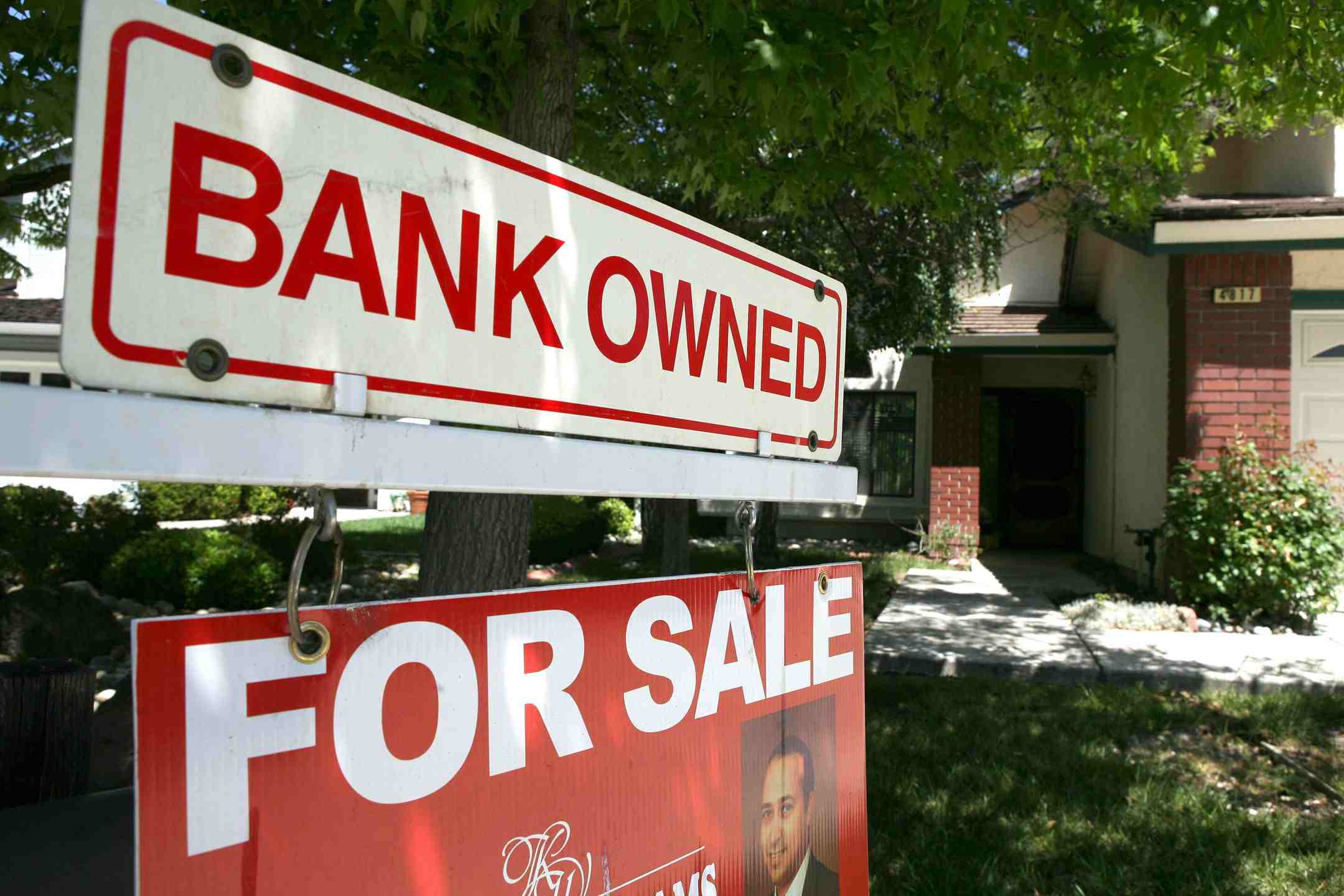Will My Bank Allow Me To Do a Short Sale if I’m Current on My Mortgage Payments?
Not all short sales involve sellers who are delinquent on their mortgage. Some banks will consider a short sale for a person who is current on their mortgage if there is a legitimate hardship and a documented decline in property values.
Some banks have a policy whereby they will only consider a short sale if the borrower is behind on their payments. This policy can be viewed as absurd, especially if property values have dropped dramatically in the area. On the other hand, why would a creditor want to consider taking less money when someone keeps paying them per their original loan agreement?
A technique used by some people who want to minimize their damage to credit while also having a short sale approved is to deliberately pay their mortgage late, but no more than 29 days late. When a bank receives their mortgage payment 30 or more days late, they inform the credit bureaus. For someone who is looking to borrow money, especially via a mortgage loan, in the next two years, a single instance of being 30 days late can prevent them from obtaining the loan they desire.

Some banks unfortunately have the policy whereby the borrower must be at least three months behind before they’ll consider a short sale. If that’s the case, then the homeowner must make a decision whether they should stop paying the mortgage. In some cases, it may be the best option for a person to stop paying the mortgage. That is a decision that should be made after consulting various professionals and weighing the pros and cons.
The first thing one should do is call their bank to express difficulty in paying the mortgage or selling the house. Many banks will mail a short sale package to the borrower if asked. Some banks will reveal their precise policy on how to qualify for a short sale, while other banks will provide nebulous answers.
MY BANK IS SENDING SOMEONE OVER FOR A BPO. WHAT SHOULD I DO?

The Broker’s Price Opinion (BPO) is perhaps the most critical step in the short sale approval process. A BPO is the bank’s field review of the property to determine the basis for its value.
A lender will typically approve a mortgage payoff that is a predetermined percentage of the BPO value. For example, a lender might only allow a payoff of no less than 84 percent of the value established in the BPO report. In other words, if the BPO states that the property is worth $100,000, then the lender might expect to receive no less than $84,000. That does not mean the lender would approve a sale price of $84,000. Adding realty commission, closing costs, and property taxes on top of that, it is feasible the lender would accept a sale price of $92,000 or higher.
So, if the Agreement of Sale price is $105,000 and the BPO values the property at $100,000, the bank will be eager to approve a short sale at $105,000. If the BPO values the property at $100,000 but the price in the Agreement of Sale is $60,000, the bank will likely reject that sale price.
Therefore, it is important that the BPO valuation be reasonably close to the sale price.
The lender often uses hires a real estate agent from the area to perform the valuation. In some cases, the agent may not be from the area. In some cases, the agent may not be aware that the property is a short sale. In some situations, the bank will pay for an appraiser to conduct an appraisal, but the lender may still refer to the report as a BPO.
A short sale seller does not need to tidy up the house for the BPO agent. The seller does not need to leave the house, as this is not a normal showing with a buyer. The BPO agent will take exterior photos and in most cases, interior photos. The seller, or the listing agent, should point out the defects and necessary repairs for inclusion in the report that goes to the bank. The BPO agent should be informed that this is a short sale situation. The cause of the hardship should be conveyed.

It is okay to give a few comparable sales to the BPO agent, and many will appreciate that gesture as it can save them time in preparing the report. Someone should tell the BPO agent the sale price.
The objective is to inform the BPO agent of the circumstances of the sale, with the hope that their valuation will be in line with the sale price. If the BPO valuation is close to the sale price, then the bank is far more likely to approve the short sale.
If you are the listing agent, you should be involved in every aspect of the BPO. You should be the point of contact that the BPO agent calls to gain entry to the property.
Things to bring during a Broker’s Price Opinion (BPO) appointment
- The comparable sales that you believe indicate the current value of the property.
- The listing detail report from the Multiple List Service (MLS).
- A list of needed repairs, supported by estimate(s) from a licensed contractor.
- Copies of code violations or other notices.
- Copy of the seller’s hardship letter.
- The listing history – to show price reductions over time. If possible, also include a list of prior showings and negative feedback from those who viewed the property.
- A description of the neighborhood and its demographics. Include a printout of a map showing the area.
- Anything else that justifies the offer price that was submitted to the lender.
Explain to the BPO agent why the offer for the property is the best possible offer. The BPO agent is typically paid $30.00 to $95.00 to conduct the report.
Bring a cold bottle of water or soda for the BPO agent. Strike up a good rapport and help make their job easier. If you’re convincing enough, the BPO might come in at the number that you need to make the short sale work.
Some banks are hiring appraisers but still referring to the report as a BPO. Depending on individual state law, some agents are not permitted to conduct a “BPO” but they are allowed to generate a Comparable Market Analysis (CMA). Nevertheless, the bank will probably refer to the valuation report as a “BPO,” regardless of whether it is a CMA, BPO, or appraisal.
Most of the time, the mortgage lender will not reveal the exact valuation from the BPO or appraisal. They do not have to tell you the amount. If the loan negotiator refuses to tell you what the valuation was, you may be able to figure it out. Ask a question like, “How close is the BPO amount to the offer price?” or “How reasonable is the offer price compared to the BPO amount?” or “What price range did the BPO amount come in at?”
I NEED A SHORT SALE ON ONE PROPERTY OF MINE. CAN THE BANK GO AFTER MY OTHER HOUSE?

The mortgage given by the owner to the bank gives the bank the right to take ownership of the house via the foreclosure process if the owner does not pay. The mortgage lender’s remedy is to take ownership of the house so it can be sold to recoup some or all of the defaulted loan.
The bank cannot seize other real estate owned by the borrower unless the borrower has some type of blanket mortgage loan that applies to more than one property. Most mortgage loans are not blanket loans but simply a loan secured by one property.
In some cases and in some states, the mortgage lender can foreclose on the borrower and may sue the borrower after the sale if the lender did not recoup the balance of the loan. In other words, if the bank foreclosed and found that the value of the property is far below what they are owed, they can pursue the former owner for some or all of the remaining balance. If the bank sues and is granted a deficiency judgment, then the former owner has to pay off that judgment somehow. The payment of that judgment may come when the person sells another one of their properties.

Although some states restrict the collection of deficiency balances, most states have laws that permit deficiencies to be treated like other unsecured debts. In states that allow deficiency judgments, the lender may be able to garnish the borrower’s wages, levy their bank accounts, and/or place a lien on other real estate they own.
In some short sales, the bank desires to retain the right to pursue a deficiency judgment after the sale of the property. The mortgage lender should declare that intention on their short sale approval letter. The borrower has the right to reject that condition of the short sale, and the parties may re- negotiate. The borrower may propose that the bank forgive the remaining debt instead of pursuing the deficiency judgment.
States with anti-deficiency laws are Alaska, Arizona, California, Iowa, Minnesota, Montana, North Carolina, North Dakota, Oregon, and Washington. It should be noted that some of these states allow deficiency lawsuits in certain situations. These anti-deficiency laws are rarely straightforward.
In rare cases, the bank may be willing to release its lien on one property to allow a short sale to occur, but the bank will add a lien to another property as long as the owner consents. This tactic is more prevalent with local banks instead of national banks. The parties negotiate a deal whereby the seller allows the bank to place a mortgage against another property for the amount of the loan that remains unpaid by the short sale. This may be a wise tactic for the seller if they have equity in one property but no equity in another.
WILL THE BANK FORGIVE MY DEBT ON A COMMERCIAL PROPERTY OR VACATION HOME?

The pandemic’s financial ripple effect has been particularly hard on commercial real estate. Facing shortfalls in revenue, tenants in the hospitality and retail sectors have fallen behind on leases, sharply curtailing cash flows for their landlords, who have been experiencing difficulty staying up to date on their loans.
Amid the downturn in consumer spending, retail has been hardest hit, with delinquency rates of nearly 23%; hospitality, hampered by sharp declines in travel, is tracking at 15% according to Trepp CMBS Research. By comparison, multifamily, office and industrial properties have been less severely affected, keeping their delinquencies below 3.5%.
When financial conditions are adverse, commercial lenders may be willing to renegotiate existing loan agreements, in some cases, forgiving a portion of an outstanding loan in exchange for other concessions.
Everything in real estate is negotiable. Many lenders are willing to forgive the remaining debt on short sales involving commercial properties, vacation homes, and multi-unit buildings. The decision of whether to forgive the debt or pursue the seller for a deficiency judgment is up to the lender.
If the bank believes that the seller is destitute, then it does not make good business sense for them to spend thousands of dollars trying to collect money from someone who does not have it.
The bigger issue for a short sale seller of a commercial property, second home, or investment building may be the tax consequence of the forgiven debt. If a lender does forgive thousands of dollars of mortgage debt, they will issue a 1099C to the borrower.

That is also reported to the Internal Revenue Service. The IRS treats forgiven debt in these circumstances as if it is ordinary income.
If a business owner has $200,000 of debt forgiven on a commercial building, then that owner will probably be liable for paying income tax on that $200,000. If the phantom income, as it is called, is not offset by losses or expenses, then there will be a hefty tax due.
$200,000 of added income in a 25 percent tax bracket means that the person could owe $50,000 to the IRS. Anyone considering a short sale should consult with their advisors about the potential tax consequences.
WHAT IS A BANK WALKAWAY?

A bank walkaway is a situation where the mortgage lender decides to charge off a defaulted loan and cancel a foreclosure action. The lender might do this if they deem that it would cost more money to foreclose and take back the property.
This bank walkaway phenomenon began in earnest in 2009. Detroit and Chicago are the cities with the most bank walkways.
Below are several bank walkway scenarios.
1. The lender begins the foreclosure process, the occupants move out, and the lender later decides to cancel the foreclosure action. The owner assumes that the foreclosure sale occurred. Many months or years later, after the house has been vandalized and lost tremendous value, the municipality informs the owner that they are responsible for the property.

2. The lender decides not to begin foreclosure proceedings. The lender may sell the defaulted note to a collection agency or another bank for pennies on the dollar. Eventually, the collection agency or bank may charge off the loan but not release the lien.
3. The borrower declares bankruptcy, but the lender never files a Proof of Claim or moves to lift the automatic stay. The lien typically remains, but the lender stops trying to collect payments on the loan.
In what is known as a principal extinguishment, the lender agrees to charge off the debt and satisfy the mortgage lien. This is the best scenario for the borrower if their desire is to keep the property.



